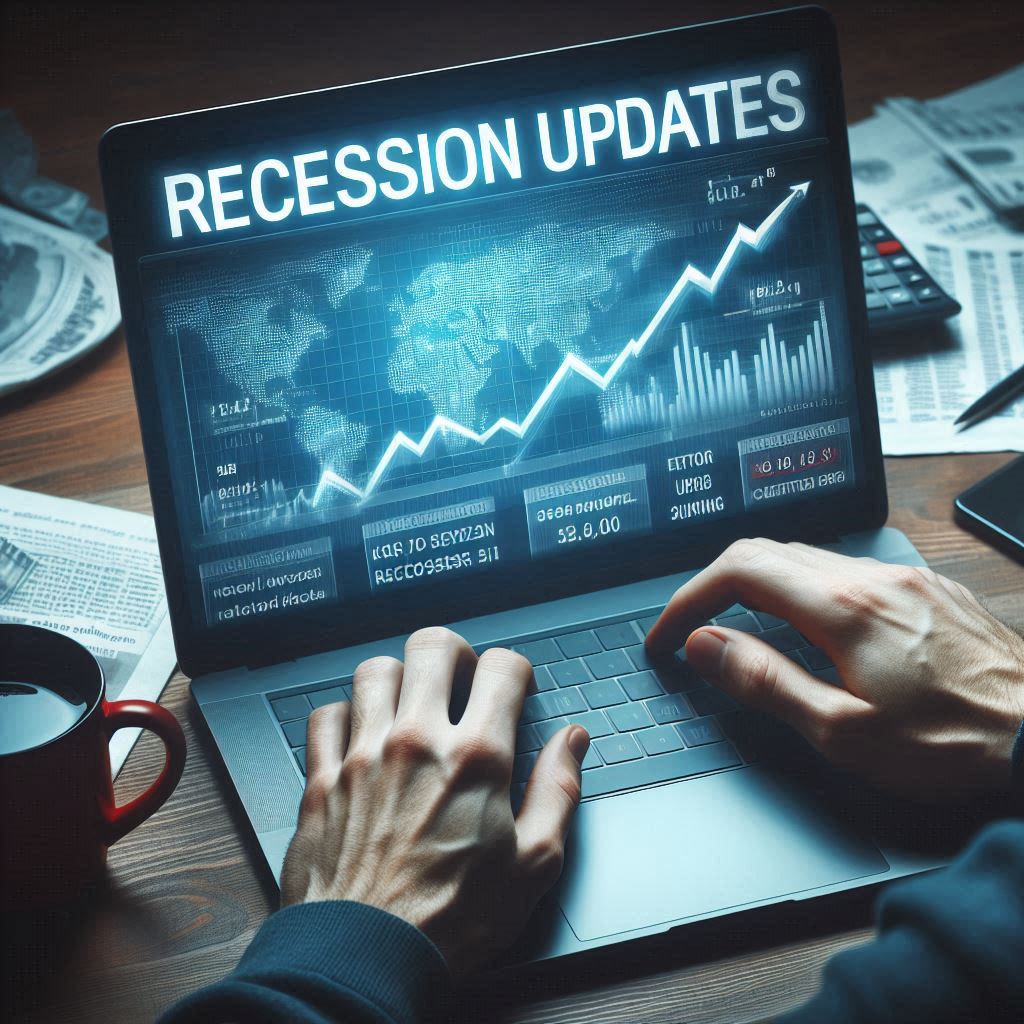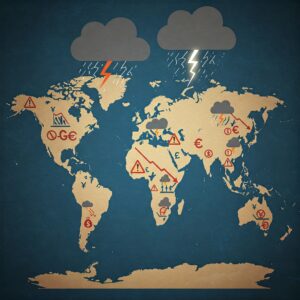Introduction
A recession is one of the most feared economic downturns, affecting businesses, investors, and everyday consumers alike. Many believe that the next recession is still years away, but several economic indicators suggest otherwise. With rising inflation, increasing interest rates, global uncertainties, and market instability, the possibility of an economic slowdown is more imminent than you might think.
Understanding the warning signs and preparing in advance can help individuals and businesses minimize the impact of an economic downturn. In this article, we will explore the key economic warning signs, global factors that may trigger the next recession, how businesses are responding to financial pressure, and what you can do to safeguard your finances.

Economic Warning Signs
Several indicators suggest that the economy is heading toward a slowdown. Recognizing these signs early can help predict when the next recession might hit.
1. Stock Market Volatility
Stock markets are known for their ups and downs, but when volatility becomes extreme, it often signals an impending recession. The stock market tends to be a forward-looking indicator, and prolonged downturns or erratic fluctuations suggest that investors are losing confidence in economic stability.
2. Rising Interest Rates
The Federal Reserve and other central banks increase interest rates to control inflation. However, rapid rate hikes can slow down economic growth. Higher borrowing costs discourage spending and investment, leading to reduced consumer demand and business expansion. Historically, aggressive interest rate hikes have been linked to economic downturns.
3. Inflationary Pressures
Inflation is another red flag. While moderate inflation is a sign of a growing economy, excessive inflation erodes purchasing power. When wages fail to keep up with rising costs, consumers cut back on spending, which directly impacts businesses and slows economic growth.
4. Increasing Consumer and Corporate Debt
High levels of debt make both consumers and corporations vulnerable during economic downturns. As interest rates rise, debt payments become more expensive, leading to increased defaults and reduced spending. When corporate debt levels are unsustainable, companies may resort to layoffs and cost-cutting measures, further worsening economic conditions.
5. Declining Housing Market
A slowdown in the housing market is another warning sign. Rising mortgage rates make homeownership less affordable, reducing demand for housing. If home prices decline sharply, it can trigger financial distress for homeowners and financial institutions, similar to what was seen in the 2008 financial crisis.
Global Factors Contributing to the Next Recession
The global economy is interconnected, and economic issues in one region can ripple across the world. Several global factors may contribute to the next recession.
1. Geopolitical Conflicts and Trade Wars
Tensions between major economies, such as the United States and China, or conflicts in regions like Eastern Europe, can disrupt trade and supply chains. Trade wars lead to higher tariffs, increased costs for businesses, and reduced global economic activity.
2. Energy Crisis and Rising Oil Prices
Energy prices have a direct impact on the global economy. When oil prices soar due to supply chain disruptions or geopolitical instability, transportation and manufacturing costs rise, leading to inflation and reduced economic growth.
3. Supply Chain Disruptions
Ongoing supply chain issues, exacerbated by factors like pandemics, natural disasters, or geopolitical tensions, can slow production and increase costs for businesses. When companies struggle to meet demand, economic growth suffers.
4. Global Debt Crisis
Many countries have accumulated massive debt burdens, and some emerging markets are on the brink of financial collapse. A sovereign debt crisis in a major economy could trigger widespread financial instability, dragging down global markets.
The Business Perspective
A recession impacts businesses in multiple ways. Companies must adapt to changing economic conditions to survive.
1. Corporate Layoffs and Hiring Freezes
As economic uncertainty rises, many businesses cut costs by reducing their workforce. Hiring freezes and mass layoffs can lead to increased unemployment rates, further weakening consumer spending.
2. Declining Consumer Demand
During economic downturns, consumers prioritize essential expenses and cut back on discretionary spending. This shift impacts industries such as retail, travel, and entertainment, leading to lower revenues and profit margins for businesses.
3. Struggles of Small Businesses
Small businesses are often the first to suffer during a recession. Unlike large corporations, they have fewer financial reserves and face greater difficulty accessing credit. Many small businesses may shut down due to declining revenue and rising operational costs.
4. Increased Bankruptcy Rates
As debt burdens grow and revenues shrink, many businesses—especially those with weak financial positions—may be forced into bankruptcy. A rise in corporate bankruptcies can have a domino effect on suppliers, employees, and investors.
What This Means for You
Understanding the signs of an approaching recession is crucial for preparing your finances and securing your future. Here’s how you can protect yourself.
1. Build an Emergency Fund
Having three to six months’ worth of expenses saved can help you weather financial difficulties during a recession. If job losses increase, having a cash cushion can prevent reliance on high-interest debt.
2. Reduce Debt
Paying off high-interest debt, such as credit card balances and personal loans, can alleviate financial stress. In a recession, managing debt becomes more challenging, so reducing obligations now can provide greater financial security.
3. Diversify Your Investments
Recessions often lead to stock market declines, but a well-diversified portfolio can help minimize losses. Consider spreading investments across stocks, bonds, and other assets to reduce risk.
4. Improve Job Security
Developing new skills, networking, and staying valuable in your industry can help protect your job during uncertain times. In industries prone to layoffs, having a backup plan or side income can be beneficial.
5. Spend Wisely
Cutting unnecessary expenses and focusing on essential purchases can help you stay financially stable during a downturn. Avoid major financial commitments unless absolutely necessary.
For additional financial tips on preparing for a recession, check out this resource from Investopedia.
Conclusion
The next recession may be closer than many expect. Economic warning signs such as stock market volatility, rising interest rates, and high debt levels indicate that the economy is under strain. Additionally, global factors like geopolitical tensions, supply chain disruptions, and energy price fluctuations further contribute to economic instability.
While businesses may struggle with declining demand and increased bankruptcy rates, individuals can take proactive steps to safeguard their finances. Building an emergency fund, reducing debt, diversifying investments, and focusing on job security can help mitigate the impact of a recession.
By staying informed and prepared, you can navigate economic downturns with confidence. Keep an eye on economic indicators and take action now to protect your financial future.




